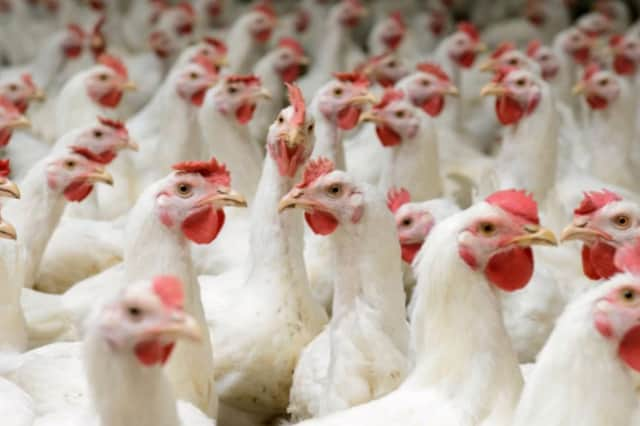Farmers criticised for poor infection control during Britain's largest bird flu outbreak


Andy Paterson, head of intervention epidemiology at the Animal and Plant Health Agency, said it is “really frustrating” that poultry farmers are taking steps to improve biosecurity but they are not being done “well enough”.
He said a number of businesses keeping large flocks have been found with poorly maintained facilities, “incomplete or inconsistent” infection control procedures, poor record keeping and a lack of accountability.
Advertisement
Hide AdAdvertisement
Hide AdThe latest figures show 79 cases of highly infectious avian influenza have been recorded in the UK since October, with 66 in England. North Yorkshire, Lincolnshire and Leicestershire have been identified as hotspot areas.
The whole of the UK is currently covered by avian influenza prevention zones, which require bird keepers to take measures to try and stop the disease’s spread, such as housing or netting all poultry and captive birds to keep them separate from wild birds, and disinfecting clothing and equipment.
Health experts say the disease is being spread by wild birds, through direct contact and faeces, but the risk to human health is very low.
Speaking to businesses during a virtual event, Mr Paterson said: “Biosecurity within these large integrated businesses is not working as well as it should.
Advertisement
Hide AdAdvertisement
Hide Ad“What is really frustrating is that the different components for biosecurity are ostensibly present, but they're just not done well enough.”
He added: “There isn't really an easy answer to biosecurity. It does require some effort, but we're not asking you to gold plate things to unreasonable standards.
“What we've noticed is that amongst the businesses that have been affected, we have some sites that are very good and, within the same business, we have some sites that are very bad. It’s dependent on the individual who's managing the site.
“I can't think of a single instance where I’ve had anybody identified to me who was accountable for biosecurity, even in big multi-million pound businesses.”
Advertisement
Hide AdAdvertisement
Hide AdThe Department for Environment, Food & Rural Affairs has not revealed when the prevention zones will be lifted, but warned the migratory season for wild birds which are carrying the virus goes on until March.
It is calling on businesses to house or net all birds and keep them separate from wild birds, thoroughly clean and disinfect housing on a regular basis and remain vigilant for signs of disease.
Clothing, equipment and vehicles should also be cleaned and disinfected before and after contact with poultry or wild birds and people should change their footwear before entering sheds housing poultry.
A woman in the South West of England tested positive for bird flu earlier this month but the UK Health Security Agency (UKHSA) said she had been in “very close, regular contact with a large number of infected birds” and transmission to humans is "very rare".
Comment Guidelines
National World encourages reader discussion on our stories. User feedback, insights and back-and-forth exchanges add a rich layer of context to reporting. Please review our Community Guidelines before commenting.
